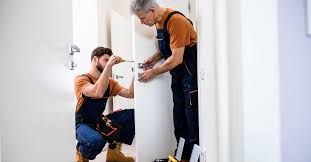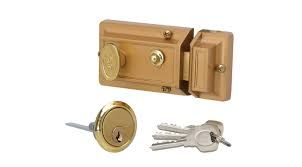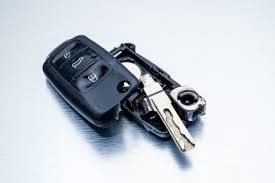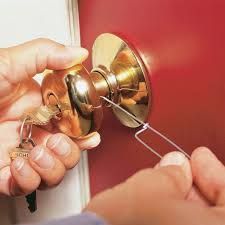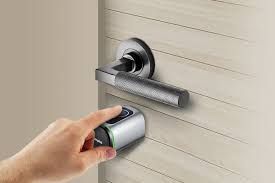11 Questions to Ask Before Hiring a Professional Locksmith
Americans spend an average of 2.5 days looking for lost items every year, with one of the top items being keys. The good news is that there is help at hand; you can call a professional locksmith.
Locksmiths work with a variety of different lock systems, including safes, windows, cars, and doors. Common reasons to hire a professional locksmith include being locked out of your home, losing keys, and changing locks.
Locksmiths are in demand for a reason. There are over 24,000 locksmith services in the US because of the many lock issues people experience. But, with so many locksmiths available, do you know how to hire a locksmith?
When hiring a locksmith, you need to know how to find a reputable service. Otherwise, you could unlock many more costly issues. An important place to start is to know what questions to ask a locksmith.
Read on to learn the eleven essential questions you should ask before you next hire a professional locksmith.
1. Are You Certified and Licensed?
It is essential to know what certifications a professional locksmith has. They should have some form of training to know how to resolve your lock issue. For example, they might have completed an apprenticeship, training in-house, or completed a course.
If your state requires licensing, then check the locksmith has the correct license. They have to meet various state requirements, such as a written exam, background check, and practical tests. For example, generally, the requirements for Texas include :
- Two years experience as a locksmith
- Criminal background check
- Locksmith training by department-approved courses
- No alcohol or drug dependency
You can check your state’s specific locksmith license requirements. You can also ask for evidence that a locksmith is working towards their license. Currently, only 15 states require locksmith licensing:
- Alabama
- California
- Connecticut
- Illinois
- Louisiana
- Maryland
- Nebraska
- Nevada
- New Jersey
- North Carolina
- Oklahoma
- Oregon
- Tennessee
- Texas
- Virginia
A professional locksmith will be happy to disclose their certifications and licenses. If there is no license requirement, it does not mean you should not ask about a locksmith’s credentials. It is still vital that they have the training to fix your issue; otherwise, they could use the wrong technique that may cause further problems.
2. Do You Have Insurance?
So, you have called locksmith services, and they tackle a problematic door lock issue. Unfortunately, their work causes more damage to your door. And it gets worse; they tell you they do not have insurance.
So, who foots the bill?
A professional locksmith is not professional without insurance. You could experience issues such as liability if a locksmith is injured on your property while working. Plus, you will not be covered by any damages done to your property if they have no coverage, leading to costly issues for you.
You cannot always avoid complex lock issues, but you can prevent the consequences of no insurance by adding it to the questions to ask a locksmith. Locksmith services should come with the proper insurance to cover any issues that may come up. Medical expenses and any damages tend to be covered by the insurance company.
3. How Much Experience Do You Have?
A professional locksmith may look great on paper, but what if they have no work experience? A newly qualified locksmith can complete some tasks, but you want to ensure a locksmith has sufficient work experience for many jobs.
Work experience indicates that a locksmith has had time to hone their skills and become more efficient at completing tasks. They are more likely to resolve issues safely and provide the best solutions for your problem, no matter how complex it is.
If a locksmith is new, it is not to say that you should not give them a chance. However, they should have the proper support from the company, such as a supervisor. A company should only send them to tasks they can complete.
You can ask about the company’s experience , too. Ask questions about how long the company has been operating in the area. A long work history suggests success and quality.
Plus, well-established companies have had time to develop the most efficient services, including customer service. You want a company that is well experienced in dealing with customers and different lock issues.
4. What Is Your Employment Process?
If you are hiring locksmith services, you need to check how they screen their employees, too. There are over 250,000 robberies per year in the US, and you do not want to put yourself at risk with any home service such as locksmith services. For example, copies of keys could be made to reenter your home at a later time.
While a robbery is less likely than an unqualified locksmith, it is best to be on the safe side. If you live in a state like Texas, where locksmith licenses are required, then check a locksmith service is following the correct process. You can also ask about their criminal background checks and drug policies.
While checking a company’s employment process does not guarantee honest employees, it reduces security risks. A company’s employment process also indicates how thorough they are as a company in general.
5. Do You Have Specialized Skills?
Nowadays, there are a variety of different lock systems, such as control access systems. It can be helpful to check what specialized skills locksmith services offer if you need them. You do not want to hire a professional locksmith and find out they cannot provide or manage access control systems.
If you have a broken access control system, it is also an opportunity to update your systems with locksmith services. Do not miss out on technical advancements or risk further issues with your system if the locksmith does not have the right skills.
Specialized skills such as dealing with different locks also indicate that the company is passionate about the locksmith service. The best locksmith companies should keep up to date with lock technology to provide the best service for customers.
You can also ask whether employees receive further training to develop specialized skills and keep up with lock advancements. It demonstrates that the company treats employees well if they are supportive of employee advancement.
6. What Locksmith Services Do You Provide?
When considering questions to ask a locksmith, do not forget to ask what services they actually provide. It is similar to asking whether they have any specialized skills. But it also guarantees you get the inclusive service you deserve.
After all, if you have taken the time to find the best locksmith services, you do not want to find another one for a different task. Locksmith services can include residential, commercial, and car services. Look out for a professional locksmith that offers services such as:
- Security support
- Different locks such as smart locks, magnetic locks and mortise locks
- Lock changes
- Broken lock and key retrieval
- Automatic door closures
- Car key replacement
Some commercial locksmiths may only offer one service, such as lock replacement. If you foresee that you might need locksmith services again in the future, it is important to clarify they can complete different locksmith tasks.
When you ask about locksmith services, also ask about their emergency support services. Do they offer 24-hour support 365 days a year? What is their callout time?
Asking questions such as this will make sure you find the best locksmith services. It is tempting to research the “best locksmith near me” and pick the first result in an emergency lock situation. But you might find they do not offer the most efficient service, so be sure to check what services they provide and the details.
7. How Much Are Your Locksmith Services?
Usually, a professional locksmith will charge in one of two ways. They may have an hourly or daily rate. Or they might have fees for specific services.
Be sure to clarify the cost of locksmith services before committing. You want to make sure it is within your budget, but also a fair price. If you can, take the time to compare several professional locksmith rates.
A cheaper company does not always mean good quality or no hidden fees, so make sure you ask other questions to clarify pricing. Once you get a quote for the locksmith service, ask for it in writing. You want to make sure there are no hidden fees or changes in pricing without reason at a later date.
8. Is There a Warranty?
When you compare rates, ask for details of what the services include. For example, does it include a warranty?
While a professional locksmith should provide quality work, sometimes issues can still arise with the work at a later date. If the locksmith services offer a warranty that covers their work, it indicates they are trustworthy. It also shows they believe in their work and are happy to provide customer care if something does go wrong.
Check the length of warranties and what is included, as these can differ depending on the company.
9. What Is Your Availability?
It is helpful if the locksmith offers emergency services, but you also want to know their routine service availability. Check when a professional locksmith is available, so you have a realistic timeframe.
A local professional locksmith is more likely to get to you quickly. A locksmith that lives in a different state or city may take longer to reach you, which is why it can be helpful to search “best locksmith near me,” as long as you remember the other questions to ask a locksmith!
Also, clarify whether the locksmith can give you a time frame, specific time, or only a day for when they can reach you. It might impact your plans if they do not give you a specific time they will come to your house.
You can also ask what the procedure is if your availability does not match theirs, as they might be able to phone you with last-minute cancellations or provide the service without you being present.
10. Do You Have Customer Testimonials?
If you have asked different questions but are still unsure about locksmith services, ask if they can provide customer testimonials. Usually, they will be able to provide reviews and point you to independent reviews, too.
Customer testimonials can increase your confidence in locksmith services. A professional locksmith should also have a good reputation, which reviews will indicate. Look out for reviews for similar locksmith services to what you require.
Taking the odd negative review with a pinch of salt is essential, but multiple bad reviews can indicate a problem. A reputable locksmith will also not have trouble explaining a negative review. If they act defensive or refuse to explain an issue, then it could be time to look elsewhere.
11. What Are My Options?
When deciding on what questions to ask a locksmith, be sure to include a question about your lock issue. For example, if you want to change your commercial lock system, ask them what your options are. It can help you determine if a locksmith is knowledgeable.
A professional locksmith should provide unbiased recommendations, especially for lock issues that have more than one solution. They should explain your options and what they recommend is the best solution for the issue. They should not attempt to persuade you or shut down other possibilities.
If the employee cannot answer the question, they should find someone in the company who can. How a locksmith company handles your query can suggest how they deal with customer service, too. You want a professional locksmith who is interested in your issue and wants to help you resolve it.
The Best Professional Locksmith in Texas
Now you know how to hire a locksmith. You have the questions to ask a locksmith and can then make a decision based on their answers. These questions will help you find the best professional locksmith for the job.
Are you in Texas and searching for the best locksmith near me? Brothers Locksmith is here to serve you and all your locksmith needs in Austin and the surrounding areas. Contact us today to get started.
Call Us Any Time!
